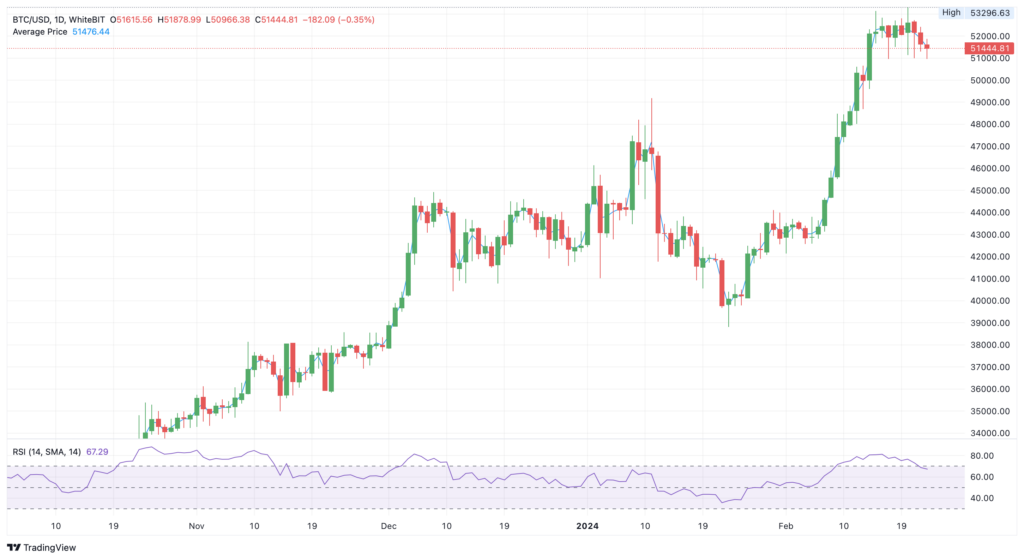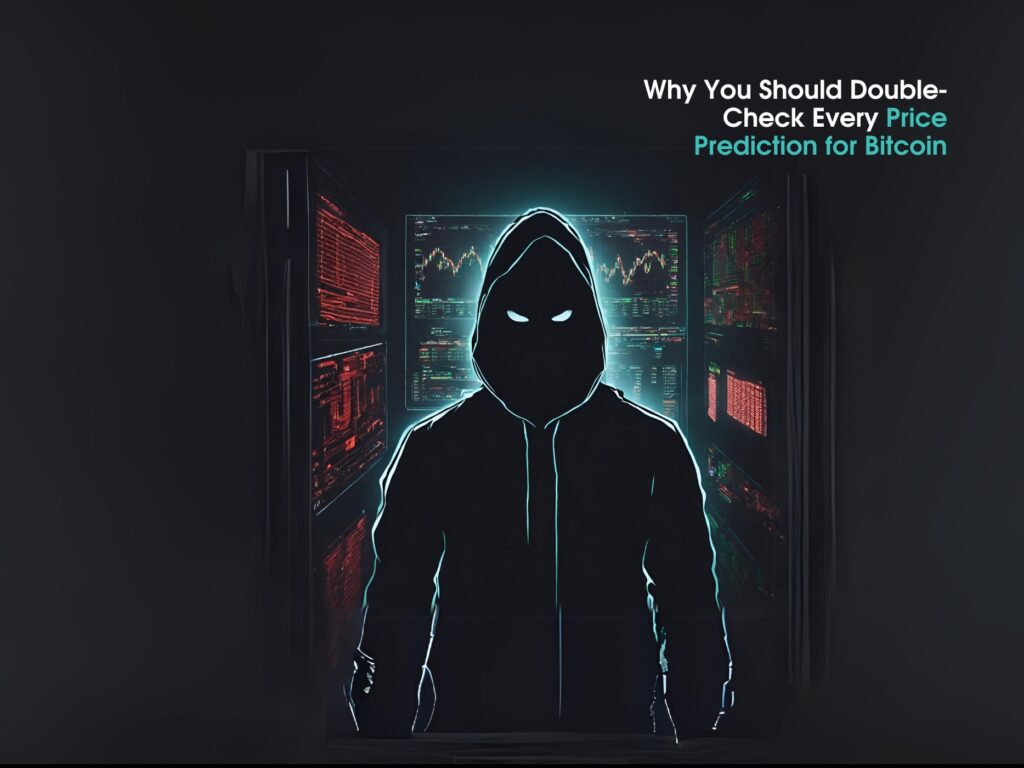The fast-food content tendency has reached every walk of life possible. Cryptocurrency is not an exclusion, seeing the rampant flow of dubious information around it.
As the internet is littered with the “grounded insights”, coming from no less “credible analysts”, it’s hard to stay away from the genuinely relevant information. Just remember the pre-Bitcoin ETF approval buzz, when the certainty of Bitcoin achieving its ATH right after approval came from every direction.
The pressure of baseless information, fused with the fear of missing out (FOMO) and greed, may possess a higher threat as to your trading budget as to the market overall. So, how to withstand the tide and proof-check the credibility of investment advice? Let’s find out using Bitcoin price prediction as an example.
Beaten $100,000: Boom or Bust?
In December 2023, a large investment company VanEck presumed that Bitcoin could generate vast net inflows due to the ETF approval, making it more likely to hit $100,000 in 2024.

Despite the fact that the insight was positioned as a forecast, standing for vague prediction, based on the pivotal factors, the $100,000 milestone for Bitcoin had been echoing in the community with rising intensity. Forbes Advisor prediction for Bitcoin is among the many examples of how the analysis was utilised to argue on the barrier.
This got severely escalated as the buzz about Bitcoin potential ATH reached the users with no expert background in investment analysis (despite some of them appear to have one). One of the most illustrative instances is Robert Kiyosaki – an author of a famous book “Rich Dad, Poor Dad”. His so-called authentic prediction, not surprisingly citing Bitcoin to cross $100,000, has gone viral and went way beyond his 2.5 million followers on X.
WHY I ❤️BITCOIN: Years ago I watched BC climb to $20k then drop to 0. I thought BC finished. Slowly watched BC climb to $6 k & I bought lots. WHY? Because people support BC not FED or Gov. BC did not need FED or Gov bailout because BC people’s money. BC to $100k. Long live BC.
— Robert Kiyosaki (@theRealKiyosaki) April 21, 2023
Depressfully, Robert Kiyosaki’s post is the most reliable example of engagement-seeking content with no expert data or verified author’s background. No closer look needed to note the lack of evidence, mixed with a hint of prejudiced attitude towards state regulators – the ones spurring evocative reaction from the crypto community.
Notably, the only argument Kiyosaki voices to support his claim is the obscure and pointless statement of Bitcoin “being people’s money”, which does not involve any fundamental data behind.
However, how to distinct the credible prediction among the ones that showcase supportive data? Or, at least, seem to.
How Not To Get Hooked On Trading Buzz: Step-by-Step
The informational hygiene around price predictions is as simple as it is painfully difficult. The best part is: you only need one action for it.
This very action stands as “research”. The complexity of this term is actually a key not only to defining valid price predictions, but also to the mass deliberate disinformation on the Web.
At first, begin with researching the author of the insight you are up to. Primarily focus on the pages in its biography that verify his/her expertness and skills.
For instance, you came across the post by someone named Michaёl van de Poppe, claiming that Bitcoin’s price will increase after the pullback. Your first step should be a complete research of the name and the expert behind it. In our case, van de Poppe can be verified as a mature trader with a great number of successfully predicted outputs and a sharp eye for crypto.
#Bitcoin having a slight pullback before continuation upwards. pic.twitter.com/6TJcnNNriz
— Michaël van de Poppe (@CryptoMichNL) February 23, 2024
However, appealing to the authority is considered to be a logical mistake for a reason. What should interest you the most is not the author of the insight, but the insight itself. While the proof-reading is an essence, it becomes greatly complicated regarding the polar and somehow obscure nature of trading analysis. But “complicated” does not equal “impossible”.
To assess the credibility of price prediction, you should first heed the proficiency of a written material. Pay the great attention to the mentions of technical indicators and chart patterns: are they used relevantly, how their readings are interpreted, which research outcomes do they provide. Namely, if the certain influencer claims that trend will stay solid despite the 50-day and 200-day Moving Averages intersection without any ground explanation, this may cast doubts on the author’s expertise.
It’s worth emphasising that trading analysis’ outcomes depend on a great variety of factors, with a chance for the trend to reverse due to the fundamental criteria. Although the chart may look bullish, it is critical to take an alternative prediction into account – as for the price predictor, as for the readers of it. Seeing that the insight is limited to a sole option, it could raise a rational doubt about information’s credibility.
To see an example of fairly decent technical analysis, I recommend you to take a look at the piece by GN Crypto. It indicates the logical background, consistency, and author’s expertise due to the solidity of the analysis.

The prediction by GN Crypto also pins the importance of noticing the timeframes in relevance to the forecast end term. Always note that the short-term prediction does the trick while casted with only a short-period timeframe, and vice versa.
Closing Remarks: What Is The Pivot of Price Predictions’ Verification
Regardless of the aforementioned tips, there is another must-use one – a Do Your Own Research (DYOR) rule. This all-in-one notion safeguards from all the risks of following pieces of investment advice by sticking to primary education. Instead of implementing someone’s prediction, study and coin your own. This is the most genuine investment data you will ever find.
Note: this article is not financial recommendation or investment advice, but an educational basis that you may or may not implement in your trading strategy. Trade safe!



